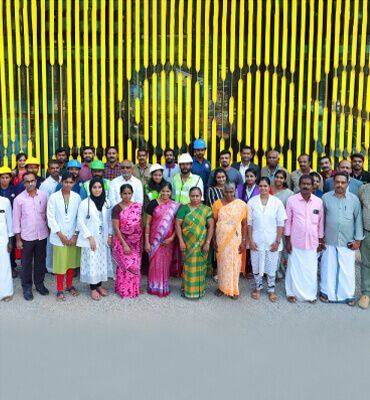NEW DELHI, June 2, 2024 – The 2024 Global Conference [November 2530] will be held in New Delhi, India, at the Bharat Mandapam, which hosted the G20 New Delhi summit in 2023.
India is home to nearly a quarter of the world’s cooperative enterprises; the statistical survey conducted by the National Coop Union of India in 2018 revealed that India has around 800,000 cooperatives, with a combined membership of more than 290 million people, and 19 multi-state apex-level societies which represent their respective sectors at the national level. In 2021, the Union Government set up a ministry dedicated to the development of cooperatives. Today the country also has a robust network of cooperative educational institutions
How did it all begin?
India has a rich history of cooperatives, rooted in the ancient philosophy of ‘Vasudhaiva Kutumbakam’ (the world is one family). Cooperation is ingrained in its culture, driving socio-economic reforms at the grassroots level. The first person to receive the ICA’s prestigious Rochdale Pioneers Award was Dr Verghese Kurien in 2001, an engineer turned cooperative manager who ushered in, together with hundreds of thousands of farmers in Gujarat, the so-called white revolution in India, making the country dairy sufficient.
But even before formal structures came into being, village communities worked collectively to create permanent assets like water tanks or Devrai – forest groves that have been preserved and protected by local communities for generations. And the country has a long history of informal mutual credit associations.
The country witnessed turmoil in the last quarter of the 19th century, with an industrial revolution that drove huge numbers of the population to agriculture – at the time, one of the only sources of employment. But the uncertainty of the sector emphasised the need for cheap, regulated credit. Cooperatives became a legal entity in India in 1904, with the introduction of the Cooperative Credit Societies Act, which over the years was extended and refined.
After India gained independence [1947], cooperatives were strategically integrated into national development plans, with an emphasis on collaboration with village councils (panchayats). As part of this, in 1963, the National Cooperative Development Corporation [NCDC] was established under the National Cooperative Development Corporation Act. In 2021, the Ministry of Cooperation was founded to provide a unique administrative, legal, and policy framework for advancing the cooperative movement across the nation.
Cooperatives are also supported by the country’s apex – the National Cooperative Union of India (NCUI) – which was established in 1929 [originally as the India Co-operative Institutes Association] to represent all sectors of the Indian cooperative movement.
Cooperation today
The constitution of India guarantees to citizens the fundamental right to form cooperatives, and the movement now covers almost 98% of rural India; it continues to be a mainstay of the rural economy, ensuring sustainable livelihoods and income for all. India is home to the two largest cooperatives in the world in terms of turnover/GDP per capita: the Indian Farmers Fertilizer Cooperative [IFFCO] and the Gujarat Cooperative Milk Marketing Federation Ltd [GCMMF or AMUL].
Alongside agriculture, cooperatives work across 27 sectors, from housing and tourism to transport and women’s welfare, serving vast sections of society including farmers, women, youth, the poor and the marginalised. Since the early 1990s, the focus of the Indian economy has shifted to privatisation. Cooperatives continue to flourish, however, and the Indian movement is committed to addressing development and empowering all.
The 2024 Global Conference will be hosted by IFFCO and the 17 ICA member organisations in India, who will share their and celebrate their country’s knowledge, experience and insight with the cooperators from around the world.
https://thecooperator.news/indian-coop-bags-ica-aps-excellence-award/
Buy your copy of thecooperator magazine from one of our country-wide vending points or an e-copy on emag.thecooperator.news
